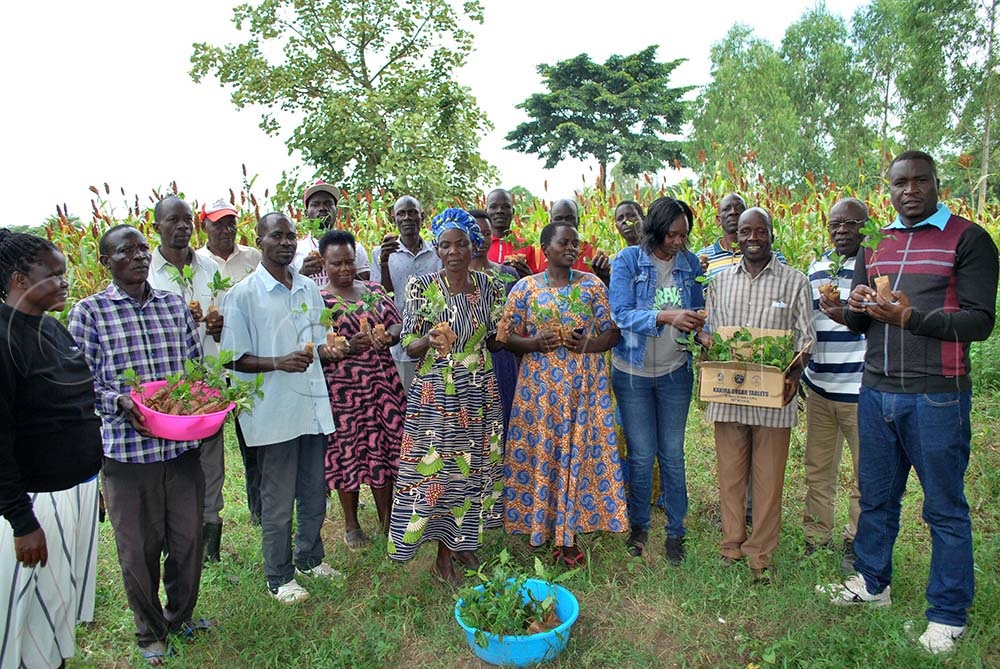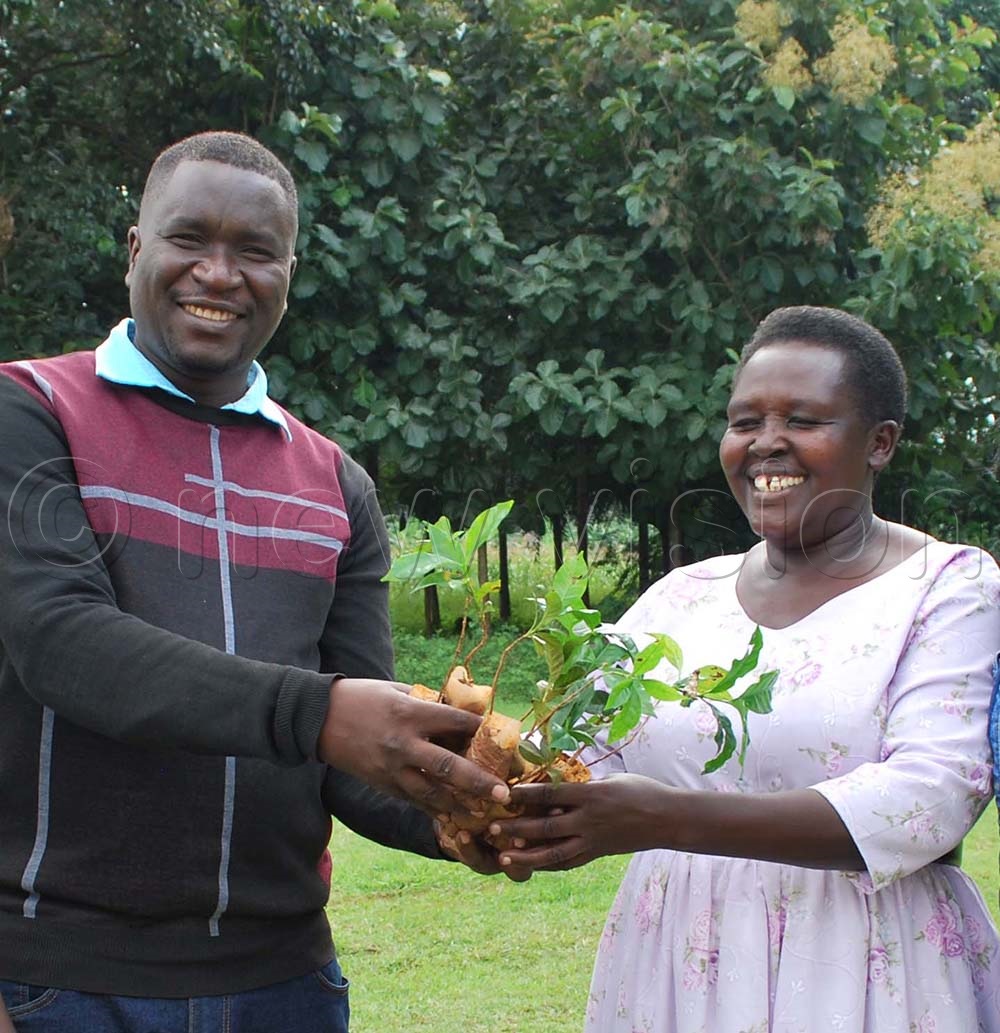Coffee gains ground in Teso as farmers seek reliable incomes
In Atapar cell, Ogonyo One ward, Kidetok Town Council, smallholder farmers have begun planting coffee alongside food crops. Judith Chelimo, one such farmer, is already seeing encouraging signs.
Judith Chelimo taking Linos Joseph Opio and Moses Etoru, the parish chief, through her coffee garden. (Credit: Godfrey Ojore)
By Godfrey Ojore
Journalists @New Vision
Coffee farming is experiencing a revival in Teso, where farmers are turning to the crop in search of more stable and profitable incomes.
The Uganda Coffee Development Authority (UCDA) has long recognised the region’s potential, declaring it suitable for coffee cultivation following a 2009 feasibility study.
Traditionally reliant on cotton, farmers in Teso switched to crops like cassava, millet, and groundnuts as cotton’s returns dwindled. Now, amid rising global demand for coffee, local farmers are embracing the cash crop once again.
In Atapar cell, Ogonyo One ward, Kidetok Town Council, smallholder farmers have begun planting coffee alongside food crops. Judith Chelimo, one such farmer, is already seeing encouraging signs.
"When I got married in Teso, I tried planting coffee in a small acre, and recently, they have started fruiting. The yield is good, and I hope to milk money from it," she said.
Linos Joseph Opio (extreme right) with farmers from Atapar who benefited from coffee seedlings. (Credit: Godfrey Ojore)
Stella Anajo, another resident, planted half an acre and hopes to expand to two acres.
"The president always talks of coffee farming, and this year, I have also tried so that I can get help with educating my children," Anajo said.
Florene Akope Akol from Kalaki believes coffee could transform livelihoods. “Coffee is marketable the world over as compared to cassava. This is the time for us Iteso to venture into serious farming that pays a farmer well,” she said.
The shift has been bolstered by Linos Joseph Opio, a district workers’ councillor, who recently donated 1,000 Robusta coffee seedlings to farmers. “Coffee can be a gateway to prosperity because of the assured global market. Let us not watch other regions develop while our soils support coffee farming,” he said.

Linos Joseph Opio gifting the district education officer, Serere Annet Icumar, with 25 seedlings of robusta coffee to help her as she prepares for retirement, she starts at the end of this year. (Credit: Godfrey Ojore)
Opio also advocated for integrating coffee with livestock farming. "An acre of coffee gives a farmer sh30 million a year, which you can't get from cassava or millet. If we embrace coffee farming, we can incorporate livestock like Friesian cows, and a farmer can reap big benefits," he said.
Despite growing enthusiasm, a 2022 government pledge to release sh30 billion for coffee and tea seedlings, out of a sh93 billion total demand, has yet to be honoured. The funds were meant to be channelled through UCDA and NAADS, but farmers continue to wait.
Local leaders, including LC1 chairperson Robert Omoding, have welcomed the momentum and are calling for more support. District education officer Annet Icumar has already planted 50 trees and plans to grow an acre for retirement income.
With fertile soils and rising interest, Serere and other parts of Teso could soon emerge as Uganda’s next coffee frontier.
